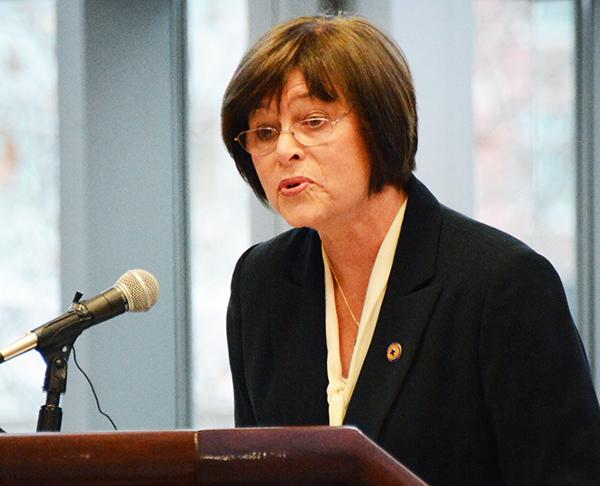
After she steps down from her deanship later this year, Jean Johnson will start a year-long project to improve workplace conditions for nurses in South Africa.
Johnson, the first dean of the School of Nursing, will partner with the University of Cape Town next year to improve education and conditions in a South African children’s hospital through new training programs.
“Currently, nurses there are not respected as they are in the U.S., so they’re really working on trying to figure out how to do that, and how to position them politically and academically,” she said.
Johnson will step down after four years at the helm of the University’s first nursing college, but even she doesn’t know for sure when her tenure will end. She has agreed to stay in her position until a new dean is ready to take her place.
The school created a search committee last fall, but the process slowed down after vacancies in other schools became GW’s priority. Both the business and law schools deans left their posts abruptly, which forced officials to put the nursing dean search on hold, Provost Steven Lerman said.
Search committee chair Christine Pintz declined to discuss the search’s timeline.
In what she expects to be a year-long sabbatical from GW, Johnson will make two month-long trips to South Africa. She expects to leave for the first trip in December, after planning the partnership since last fall.
Johnson first worked with the University of Cape Town in 2011, when GW hosted a South African infectious disease clinical research training program there.
She said she was excited to help move the country’s nursing system forward: Her job will include working to change the way South Africans treat nurses, which is tied to her experience as a nurse practitioner. The country’s health care system faces additional challenges like high rates of domestic violence and diseases such as HIV and tuberculosis.
“There’s so much good stuff going on, and there are so many challenges,” she said. “Nursing could be a really important part of the health care system in South Africa.”
South Africa provides 76 physicians and 2.8 hospital beds for every 1,000 people, according to the CIA World Factbook.
The country recently developed a public health system that assigns teams of medical professionals, including nurse clinical practitioners, to different regions. The new structure could give nurses more of a stake in public health, she said.
“This is a really new endeavor, but it gives nursing an important role and visibility,” Johnson said.
-Mary Ellen McIntire contributed reporting.







